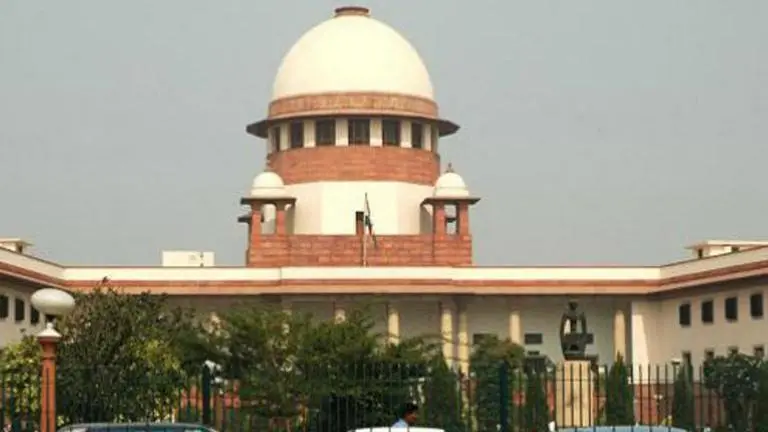Updated 22 January 2020 at 21:14 IST
Ex-minority panel chief Wajahat Habibullah, Bhim Army head move SC against CAA
Besides Habibullah and Azad, social activist Swami Agnivesh and Delhi resident Bahadur Abbas Naqvi are also the co-petitioners in the case.
- India News
- 3 min read

Former chairperson of National Commission for Minorities Wajahat Habibullah and Bhim Army Chief Chandrashekhar Azad moved the Supreme Court on Wednesday challenging the constitutional validity of some laws including the Citizenship (Amendment) Act (CAA).
The plea said the laws are "arbitrary", "irrational" which would lead to "hostile discrimination" of certain sections of the society.
Besides Habibullah and Azad, social activist Swami Agnivesh and Delhi resident Bahadur Abbas Naqvi are also the co-petitioners in the case.
Besides the CAA, the fresh plea has also sought quashing of the Passport (entry into India) Amendment Rules, 2015; Passport (entry into India) Amendment rules, 2016; Foreigners (amendment) order, 2015; Foreigners (Amendment) Order, 2016; Citizenship (registration of citizens and issue of national identity cards) Rules, 2003 and Citizenship Rules, 2009.
Advertisement
The top court on Wednesday made it clear that it would not stay the operation of the CAA without hearing the Centre and said that a five-judge Constitution bench would decide its validity.
In the fresh plea, the petitioners have made the Ministries of Law and Justice, Home Affairs, External Affairs and Defence the as respondents.
Advertisement
The plea claimed these laws were ultra vires the Constitution and an attempt to play a "fraud" on the people of the country.
"The Citizenship Amendment Act, 2019, which has been brought into force vide notification dated January 10, 2020, is only a step leading to the promulgation of the National Register of Citizens with the clear intent of placing all the backward sections of citizens including Muslims into detention centres and removing them from the mainstream, thereby destroying the existing fabric of the Nation," it alleged.
It further claimed that the enactments were steps leading to the promulgation of the National Register of Citizens (NRC) with a clear intent of "placing all the backward sections of citizens including Muslims into detention centres and removing them from the mainstream, thereby destroying the existing fabric of the nation".
"The amendment treats migrants belonging to certain specific religions as a separate class from other illegal migrants and creates a class within a class which is impermissible. The amendment treats illegal migrants who have entered India on or before December 31, 2014, as a separate class from other illegal migrants and creates a class within a class which is impermissible. The Ordinance is based on arbitrary, hostile discrimination and is devoid of reasonable classification," the plea alleged.
It added that the Passport (Entry into India) Amendment Rules, 2015 and 2016, and Foreigners (Amendment) Orders, 2015 and 2016 were against the legislative policy regarding Indian citizenship.
"There is no data substantiating the conclusion that persons belonging to Hindu, Buddhist, Sikh, Jain, Parsi, Christian communities have fear of persecution in their day to day life. Moreover, there is no mechanism put in place to verify the same," the plea said.
It said the newly amended citizenship law violated article 14 (equality before the law) as there was no preamble to the Citizenship Amendment Act and the classification was "arbitrary, irrational, devoid of intelligible differentia".
It further claimed the provisions of the law destroyed the secular fabric of the country as only migrant Muslims will now remain 'foreigners'.
"There was an unexplained haste/hurry in passing the Citizenship Amendment Bill, 2019, resulting in widespread protests... The CAA was introduced by misusing executive power and after having stealthily excluded Hindus, Sikhs, Christians, Parsis and Jains from the definition of 'foreigner' under the Foreigners Act 1946 and from the definition of 'illegal migrant' under the Citizenship Act, 1955," the plea said.
Published By : Press Trust Of India
Published On: 22 January 2020 at 21:14 IST
